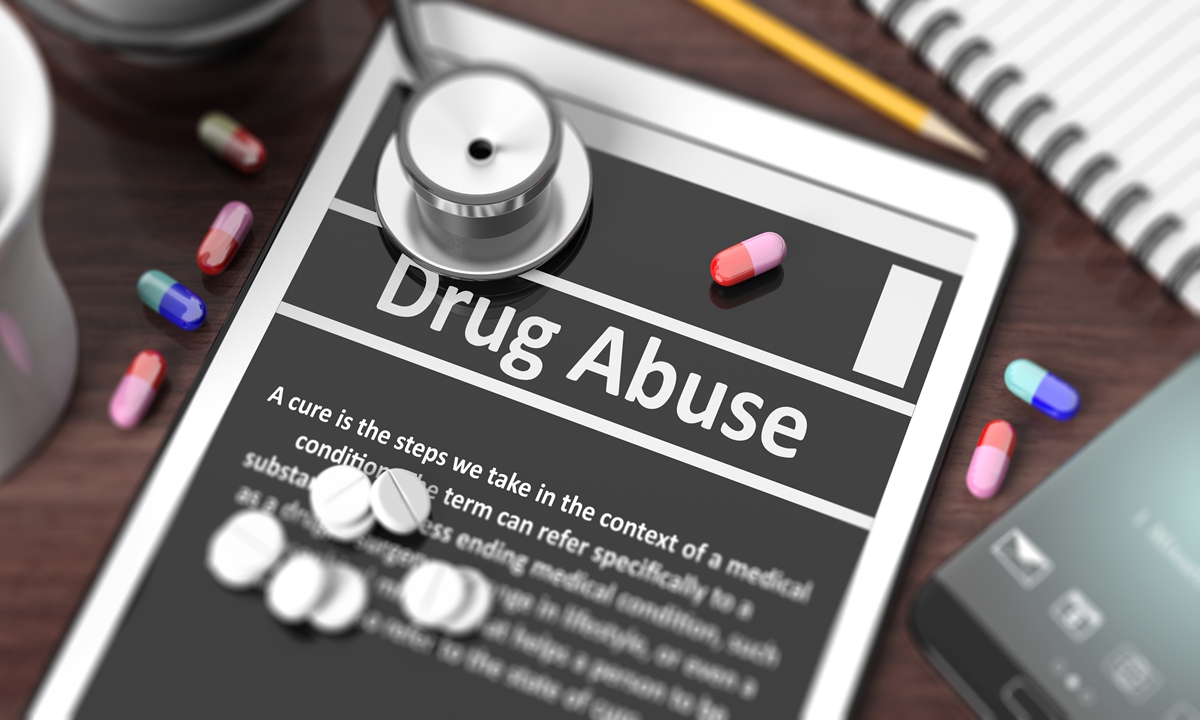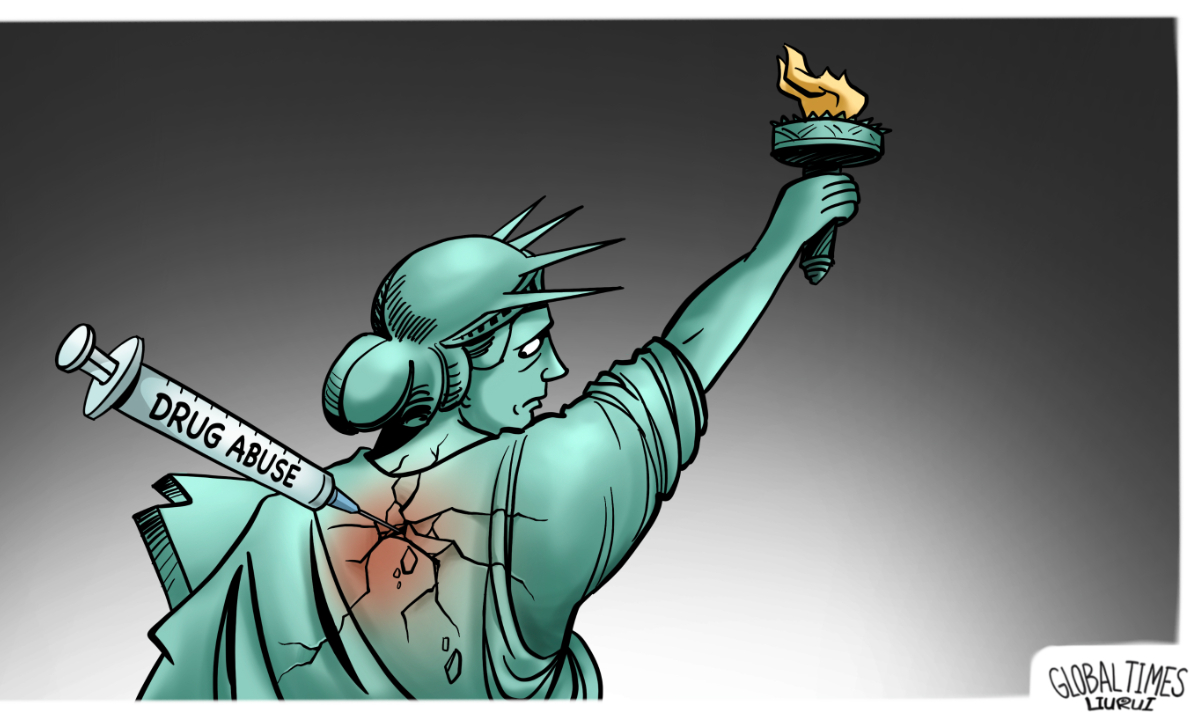Drug Abuse: a Social Malaise in US
Editor's Note:
The challenge arisen from the use of drugs is an international one; it is most acute in the US. Twelve percent of global drug users come from the country, three times the proportion of the US population to that of the world, according to a recent report released by the Chinese Foreign Ministry.
Facts and statistics revealed that the US government has been delegating its primary responsibility to protect its citizens to the people themselves. The drug abuse is just one case in point.
Politicians have been ignoring the sedation or even outright poison administered by interest groups to the public, always for selfish political gains.
Check out this photographic to get deeper understanding of the gravity, causes and costs of this social malaise in the US.
Drug Abuse: A Social Malaise in US. Graphics: Tang Tengfei, Chen He, Liu Xidan, Xia Qing/GT >>
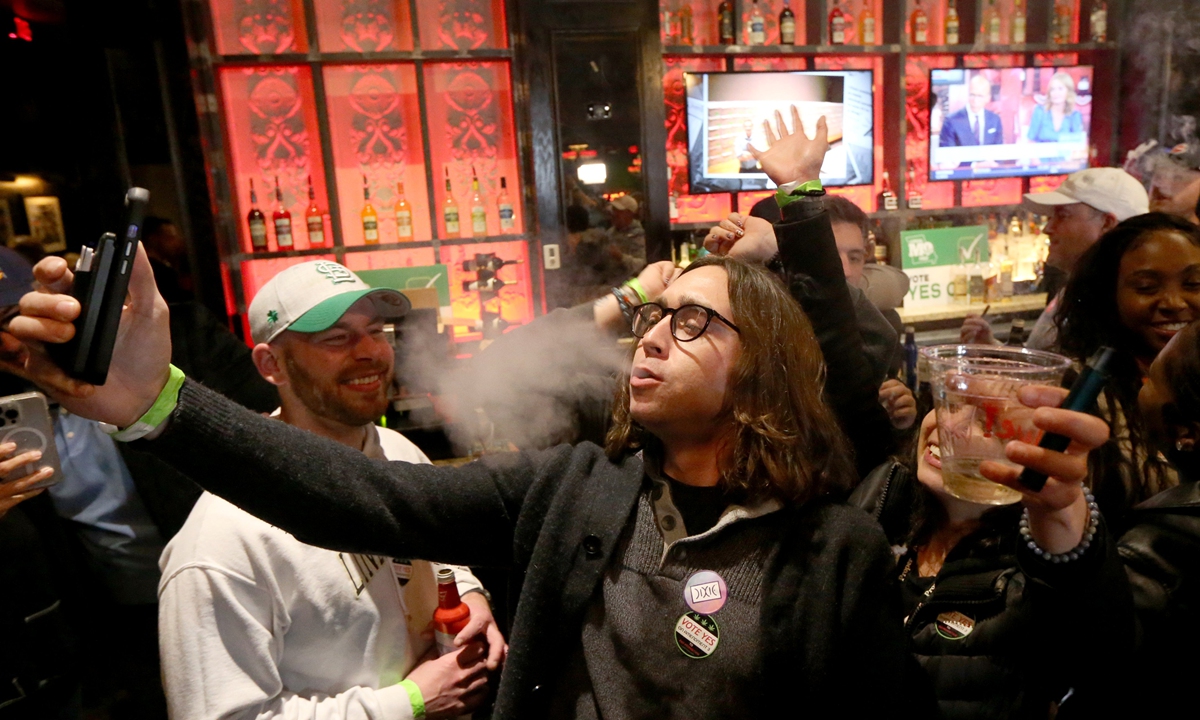
A man smokes marijuana while celebrating the passage of Amendment 3 which legalizes recreational marijuana in Missouri during an Election night watch party in downtown St. Louis, US on November 8, 2022. Photo: VCG
Big Pharma greed, lobbying, failed governance, and economic woes lead to US' drug crisis
Editor's Note:
While the US continues to buy into the dual fallacy of being the "city upon a hill" and a "beacon of democracy," the reality on the ground tells a different story - an increasingly large swathe of the American population struggling with drug abuse, growing worries around gun violence, an ever-widening economic gap between the haves and the have nots, intensifying political polarization, more arbitrary detention of and hatred toward minorities... These sustained forms of unrest not only exacerbate social inequality and worsens domestic human rights conditions, but also expose the US' hypocrisy as it is unable to resolve its own issues, yet never stops criticizing other nations' human rights records. The Global Times is publishing a series of articles that examine these and other sociopolitical and economic forms of chaos in the US. This is the first installment in the series. America's drug abuse problem - a long-existing thorn in the side of US society - has grown more serious in recent years in the country along with an increasing number of young people turning to drugs due to dwindling economic opportunities and the apparent death of the so-called "American Dream," analysts said. Statistics showed that 12 percent of global drug users come from the US, three times the proportion of the US population to that of the world, according to a report released by the Chinese Foreign Ministry. Experts told the Global Times that the deep-rooted drug problem in the US reflects the US' failure in social governance. Despite the US government's pledge to solve the problem, not much progress has been made so far, which exposes its failed regulation across multiple systems and its inability to make an effective and comprehensive response. The drug problem in the US is caused by an interplay among economic interests, lobby groups, as well as social and cultural factors, an expert in international relations at Fudan University, told the Global Times. The drug problem is the US' big systematic problem. It is hard to solve. The US should make more efforts as a nation and at the same time, take action together with other countries. Instead of shifting blame and making groundless accusations against other countries, which undermines China-US counter-narcotics cooperation, it should face its own problem squarely, observers said.Prevalent phenomenon
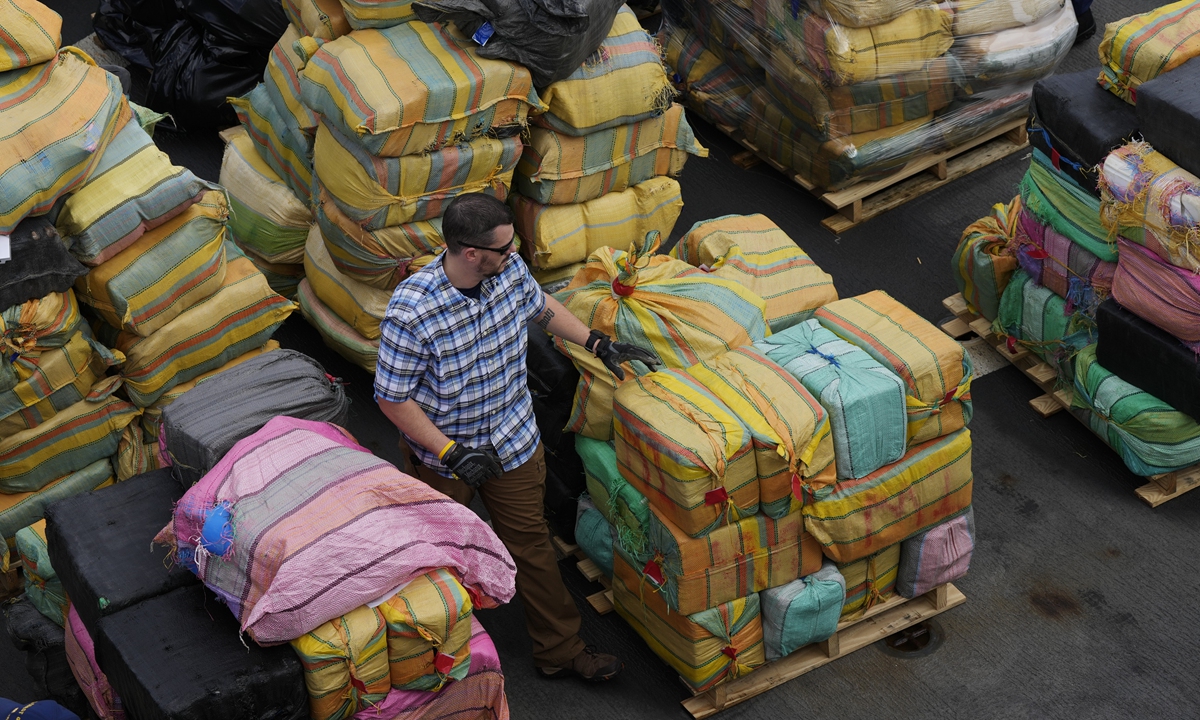
Deep-rooted social causes
Throughout history, the US war on drugs has repeatedly failed due to not only governmental incompetence but also the country's deep-rooted social problems, observers told the Global Times. It is the US society's various complex social factors that, together, have led to the country gradually becoming the world's largest consumer of drugs, they noted. "From the Vietnam War, to financial crises and the COVID-19 pandemic, drug abuse in the US has surged whenever there are economic turndowns or prominent social contradictions." The US' official drug war can be traced back to 1952, when then-president Richard Nixon signed the famous Boggs Act to set mandatory sentences for drug convictions. The act and subsequent laws soon proved defective and impractical. In the 1960s and 70s, the US' time-consuming war in Vietnam triggered a "counterculture movement" as American society at the time was flooded by anti-war sentiments. Many youngsters, later known as "hippies," poured onto the streets with brandishing signs promoting love, psychedelic rock, sex, and drugs. Nearly 40 percent of American high school seniors in the late 1970s reported illicit drug use, according to data from a survey funded by the US National Institute on Drug Abuse (NIDA). The COVID pandemic saw another spike in drug use in the US, as NIDA statistics showed that 91,799 and 106,999 people in the US died from drug-related overdoses in 2020 and 2021 respectively, a sharp increase from 70,630 in 2019. Apart from social recession or crises that stimulate drug use at times, the severe inaccessibility to quality education targeting young people is also another contributing factor behind the US' drug abuse problem, experts noted. For US teens, "it's easier to get alcohol than marijuana" used to be a common sentiment in some states, and scenes involving teens smoking marijuana are not rare in American TV series or Hollywood movies. In 2021, 30.5 percent of 12th graders and 17.3 percent of 10th graders in the US reported having used marijuana, according to NIDA. "Chinese children are warned by parents and teachers to stay away from drugs since early age. But some American parents and teachers, rather than discouraging such behavior among their students, may even encourage some [drug use]," said the Fudan University expert. "These adults have very weak anti-drug awareness, and a few even use drugs themselves." Against such a complex social backdrop, Nixon and his several successors in recent decades, including Ronald Reagan in the 1990s and more recently former president Donald Trump, have tried to curtail the drug abuse problem in various ways. However, very few of their efforts really worked. Worse still, crackdowns on drugs have caused "unintended, negative consequences," such as putting a big strain on America's criminal justice system, the proliferation of drug-related violence, and an increase in racial issues locally, said a 2016 article published on American news and opinion website Vox. Therefore, as the war on drugs looks unwinnable, some US policy experts and historians have to focus more on rehabilitation. Ironically, they seem to have given up, turning to advocate for "the decriminalization of currently illicit substances, and even the legalization of all drugs," the article said.Buck-passing games
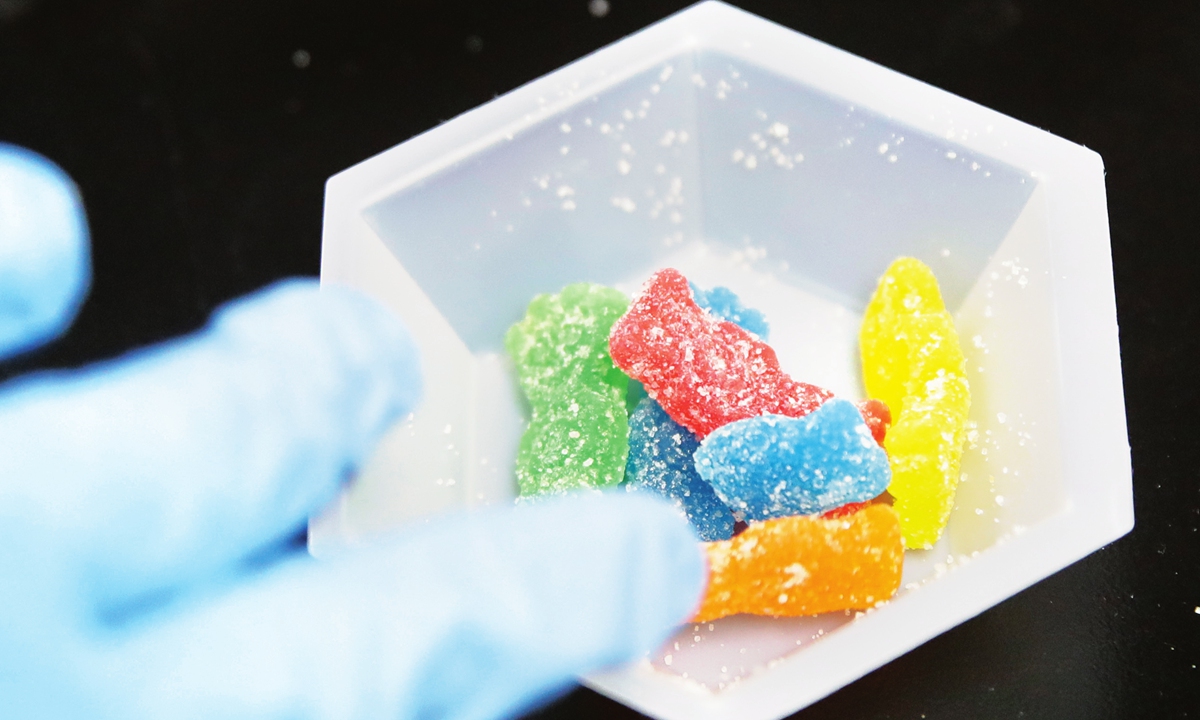
"International cooperation is entirely necessary, but what is most important in the struggle against drugs is introspection and investigating the profiteers in the business sector, the public and, yes, even in the government sectors. Only then can the US government take legitimate steps to combat the spread of drugs," Turner suggested.


